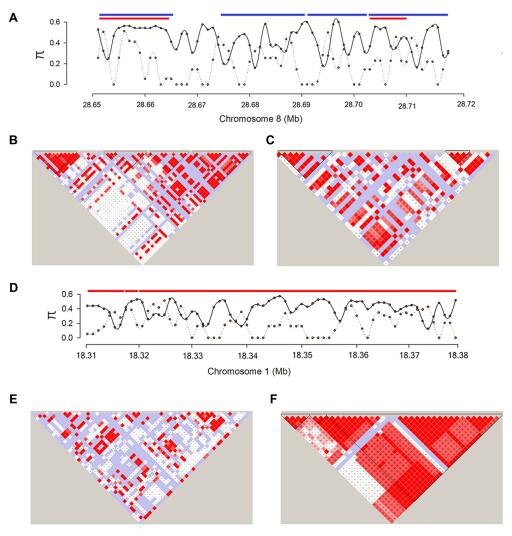
Identifying DNA sequence variations is a fundamental step towards deciphering the genetic basis of traits of interest. Dr. MA Baiquan, supervised by Prof. HAN Yuepeng from Wuhan Botanical Garden, investigated the genetic diversity among apple germplasm.
A total of 30 diverse apple accessions (20 cultivars and 10 wild relatives) were genotyped using an efficient genotyping method of specific-locus amplified fragment sequencing, and 39,635 single nucleotide polymorphisms (SNPs), with no missing genotypes and evenly distributed along the genome, were selected to investigate patterns of genome-wide genetic variations between cultivated and wild apples.
Based on these SNPs, the wild apples displayed higher levels of genetic diversity than cultivated ones and bidirectional gene flow were detected between domesticated and wild apples.
Linkage disequilibrium (LD) decayed veryrapidly in cultivated and wild apples, thus these low LD values in the apple genome would support high-resolution genetic mapping. The different distribution patterns of LD blocks were detected between domesticated and wild apples.
Most LD blocks unique to cultivated apples were located within quantitative trait loci regions controlling fruit quality, suggesting that fruit quality had probably undergone selection during apple domestication.
This study not only provides an economical genotyping strategy for Malus species, but it also helps in our understanding of the evolutionary process of apple domestication.
This work was supported by the National Natural Science Foundation of China, and results were published in form of cover article in Journal of Integrative Plant Biology entitled “Reduced representation genome sequencing reveals patterns of genetic diversity and selectionin apple”.

Patterns of LD blocks in two genomic regions (Image by MA Baiquan)

86-10-68597521 (day)
86-10-68597289 (night)

52 Sanlihe Rd., Xicheng District,
Beijing, China (100864)

